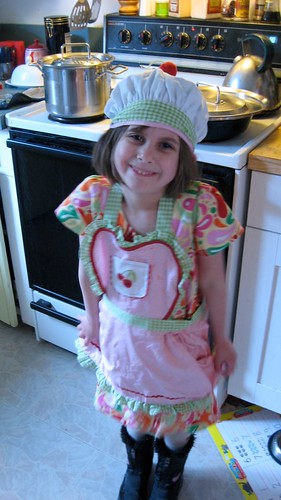
As we drove home after dropping the daddy off at work and the boy off at school, Hypatia asked me to play a board game with her when we got home. My first reaction was NO. It's so easy to say No - No, I have too much work to do. No, I'm busy. No, I'm tired. No, I don't want to make a mess right now.
It's harder to say Yes. It's harder to get past my first reaction and to go ahead and spend the time doing something I don't necessarily want to do.
But doesn't it feel good when people say Yes to you? Doesn't it feel good to have someone spend time with you? What kind of relationship is built by that word - "Yes"?
It will help your kids feel good about themselves. It will help them have confidence to ask again, to talk to you, to share with you.
It will help them see the world as a more positive place, creating more optimism - a personality trait that has been shown to lead to greater resilience in life.
It will create a closer parent-child relationship. Every time you say yes to anyone, you are putting an investment in your relationship bank. No, I don't want to reduce human relationships to "mere" transactions, but I do find it incredibly useful to remember the concept of "relationship capital" in my life - and saying Yes to your child is building up relationship capital.
And it makes for an environment of Yes. An environment in which everyone is more likely to say Yes. So when I say, "do you want to help me in the kitchen?" they say Yes. And when they say "can you bake cookies?" I say yes. And when I say "I'm tired - will you all be quiet while I lie down for a bit?" they say Yes.
All good reasons to say YES.

The director of the day care where I once worked used to challenge us to go a day without saying "no" to the kids. This did not always mean assenting to whatever they suggested, but was very sound advice for dealing with toddlers, who are much more responsive to redirection than to "No." So, for example, if a toddler begins to climb onto the sink to play with water and we didn't want them to play with water, we would say, "Oh, look, Emma is building a tower--do you want to help her see how high we can build it?"
ReplyDeleteBut her reminder also helped us to go further and do what you are recommending: say yes whenever possible. I try to remember this with my daughter, even though, like you, I often have the first impulse of "No." And when I do have to say "No" I try to remember to make it a positive "No": "Right this moment I want to finish making dinner, but can we play that game right after we eat? And do you want to peel the carrots?"